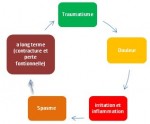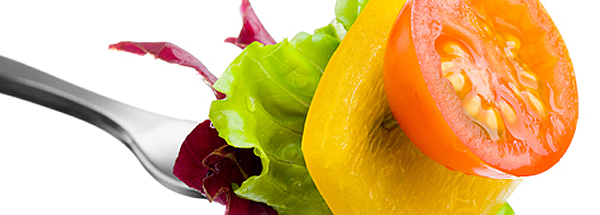Reduce inflammation and pain through diet

We can think of pain and inflammation as the body's natural responses to injury. When pain persists, we must ask ourselves what physical and emotional factors can contribute to maintaining or exacerbating the pain. A popular saying goes: “Tell me what you eat, I’ll tell you who you are…”
What should you do if the cause that causes, maintains or increases your pain comes from your diet?
First, you should know that a body that is too acidic will have more inflammation and pain than a body that is more alkaline. The “disease” only evolves in an acidic body. The foods we eat leave traces in our body and some of them can contribute to increasing the acidity level in our body.
For example, red meats, dairy products, processed and refined foods (white bread, white pasta, white rice, etc.), as well as sugars are foods that leave an acidic residue in the body. Some of these foods, such as meat and dairy products, are nevertheless beneficial for your health but they should be consumed in moderation. Many foods are considered alkaline and should therefore form the basis of our diet. These include fresh vegetables and fruits (including citrus fruits). To find out exactly which foods are more acidic or more alkaline, just do a Google search for “acidic and basic foods.”
In an ideal world, your diet would consist of 80% alkaline foods versus only 20% acidic foods. By reducing the acidity in your body, you will have more energy and less chronic pain.
Here are some tips to help reduce acidity in your body through diet:
- Drinking the juice of half a lemon with water should be the first thing you do every morning and as soon as you get out of bed. Many people wrongly believe that lemon is acidic, but this citrus fruit nevertheless leaves an alkaline residue in the body and promotes the work of the liver.
- Have at least one daily serving of dark green leafy vegetables
(e.g. kale, cabbage or mustard greens). - Choose whole grains that are less acidic than rice.
(for example, quinoa or millet) - Choose fish or lamb which are less acidic than beef or chicken.
- Use olive oil for cooking, it is less acidic than other vegetable oils.
It is important to remember that stress, whether physical, emotional or nutritional, can contribute to increasing the acidity of your body and thus cause fatigue and pain. As much as possible, try to reduce stress in your life or at the very least, find effective ways to cope with it.
Sandra Power, RHN, NNCP
Holistic Nutritional Consultant
Holistic nutrition consultant




